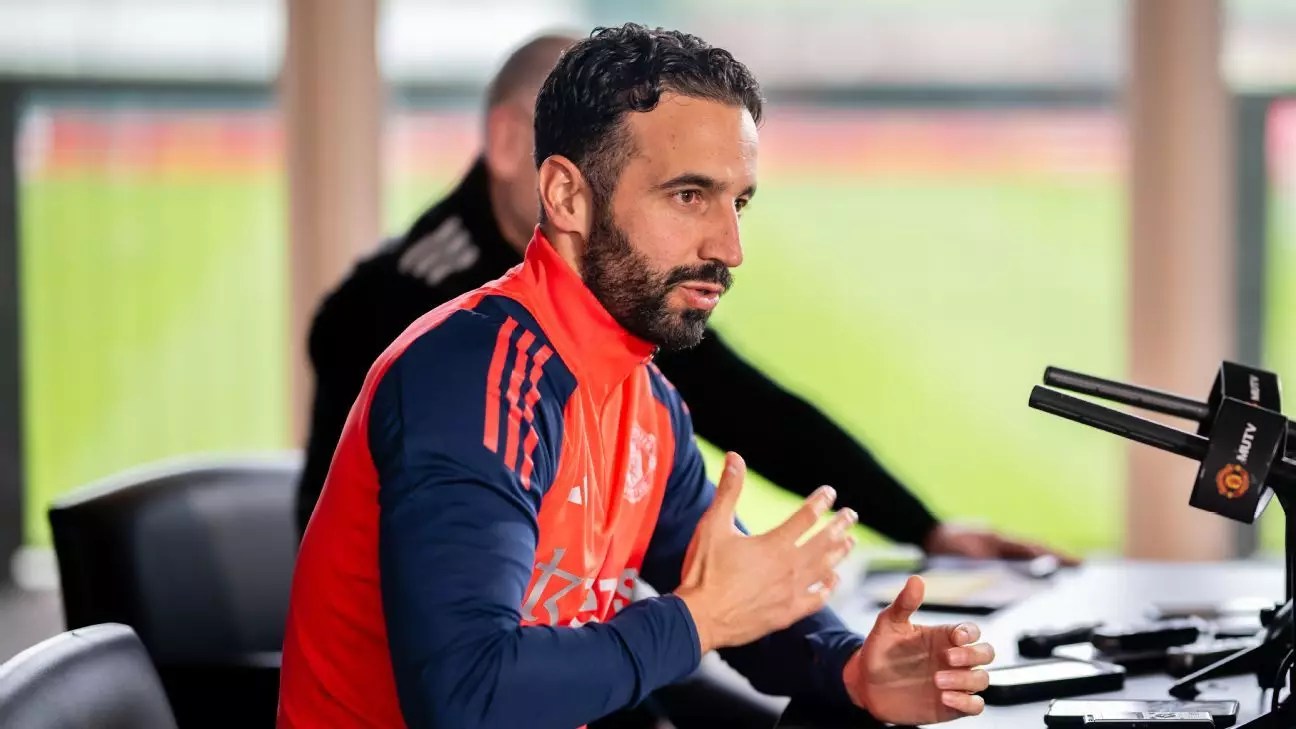Rúben Amorim’s appointment as head coach of Manchester United marks an intriguing shift in leadership dynamics at one of football’s elite clubs. Arriving from Sporting CP, Amorim’s transition, however, is couched in a redesigned framework that diminishes his power relative to past head coaches. He joins a collaborative structure spearheaded by sporting director Dan Ashworth and technical director Jason Wilcox, changing the traditional model in which managers often wielded significant authority over transfer decisions.
This nuanced approach reflects a broader trend in football management, where clubs are increasingly leaning on a collective strategy rather than a single figure’s intuition. The intention is clear: to incorporate diverse perspectives in recruitment, balancing Amorim’s insights with the analytical prowess of Ashworth and Wilcox. While the collaborative model can lead to a more comprehensive evaluation of player options, it raises significant questions regarding the level of autonomy Amorim will ultimately have in influencing the squad.
In his inaugural press conference, Amorim articulated a clear vision regarding player recruitment, emphasizing the need for a unified effort in acquiring new talent and managing departures. He asserted, “I have to have a strong position on that because I am the coach,” suggesting that the final decision should reside with him. This statement underscores not only his desire for control but also the inherent responsibilities that accompany his role. Being head coach, according to Amorim, means being answerable for both successes and failures stemming from recruitment choices—a sentiment that resonates strongly in the high-pressure environment of Manchester United.
While Amorim’s insistence on playing a pivotal role in player selection is commendable, it introduces a potential contradiction within the newly established structure. If recruitment is intended as a team effort, how will Amorim’s input be weighed against the strategies pushed by Ashworth and Wilcox? This situation sets the stage for a defining characteristic of his tenure—navigating these complex relationships while ensuring the team’s competitive edge.
Sitting at 13th in the Premier League table, Amorim faces an uphill battle to restore both performance levels and confidence within a squad that has suffered setbacks. He reflected on the psychological toll that a poor start can inflict on players, noting the fragility of self-belief in football. “When you don’t win games, you start to be suspicious of the way of playing,” he remarked, highlighting the delicate nature of player mentality, especially in a club with high expectations like Manchester United.
The challenge extends beyond simply implementing tactical changes; it demands a comprehensive approach to player management. Amorim must foster an environment where athletes can regain their confidence—a task that requires both psychological insight and tactical acumen. With a diverse range of players at his disposal, he will need to instill belief in their capabilities, as observed during past seasons when the team managed to turn performances around without significant tactical shifts.
Amorim’s arrival at Manchester United is layered with expectation and anxiety. His approach will not only influence the club’s immediate fortunes but also the broader narrative around United’s evolution under a new regime. With a commitment to improving the recruitment process while asserting his authority as the head coach, Amorim must balance collaboration and decisiveness.
As he prepares for his first match against Ipswich Town, all eyes will be on how his management style translates into both recruitment strategies and on-field results. Success or failure will ultimately shape not just his tenure but also the future direction of Manchester United, a club keen on returning to its glory days. The moment carries weight, reminding both Amorim and the club that in football, the balance of power may shift, but responsibility remains firmly in the hands of its leaders.


Leave a Reply